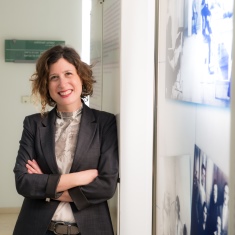
A new BGU research study of oncologists finds more burnout among women but more emotional distress with regard to patient death among men at lower levels of burnout. While overall, women reported more burnout, they also reported emotional distress and grief responses only at higher levels of burnout than their male colleagues.
Burnout is a big issue among oncologists and many studies have documented its prevalence. Yet few have attempted to determine what is associated with the high burnout rate. Gender is an important variable to examine in this context, says primary investigator Dr. Leeat Granek of BGU’s Department of Public Health. The study was just published in the prestigious journal, Cancer.
Granek’s previous research had determined that women feel more comfortable expressing themselves about patient death than their male colleagues. She also found that male oncologists felt more comfortable opening up to women, whether their spouses or female colleagues, than to their male colleagues. These findings led to the current study and the associations between gender differences, reactions to patient death, emotional distress and burnout.
The researchers interviewed 178 oncologists from Israel (52 of whom were women) and Canada (48 of whom were women). Delving deeper into burnout, Granek suggests looking at the cumulative stressors oncologists face on a day-to-day basis. “Oncologists may be able to cope effectively with patient death when they are not feeling burned out by the other challenges their job poses. Therefore, interventions need to look holistically at improving quality of life at work and in the process also improve quality of care for patients and their families,” she says.
Regarding gender, gender sensitive interventions for coping with patient death and dealing with burnout are crucial. There is accumulating evidence that some of the stressors for women in all professions derive from the struggle to balance work and home life. Childcare and home care are unfortunately still largely the woman’s burden, Granek points out, so women face greater challenges balancing work and home. Granek and her colleagues cited a meta-analysis of nearly 200 studies that showed that when longer maternity leave is offered and places have family friendly policies, women report significantly less burnout.
“This may indicate that burnout rates among men and women are not inherent or biological, but are caused by structural inequalities that affect women differently than men,” she argues. The issue then, according to Granek, is not that women suffer more from burnout or grief reactions because they are women, but it may be that they are experiencing more difficulty balancing all the other stressors in addition to patient deaths.
Leeat Granek PhD, Monika K. Krzyzanowska MD, MPH, Ora Nakash PhD, Michal Cohen MA, Samuel Ariad MD, Lisa Barbera MD, Rotem Levy BA, Merav Ben-David MD
